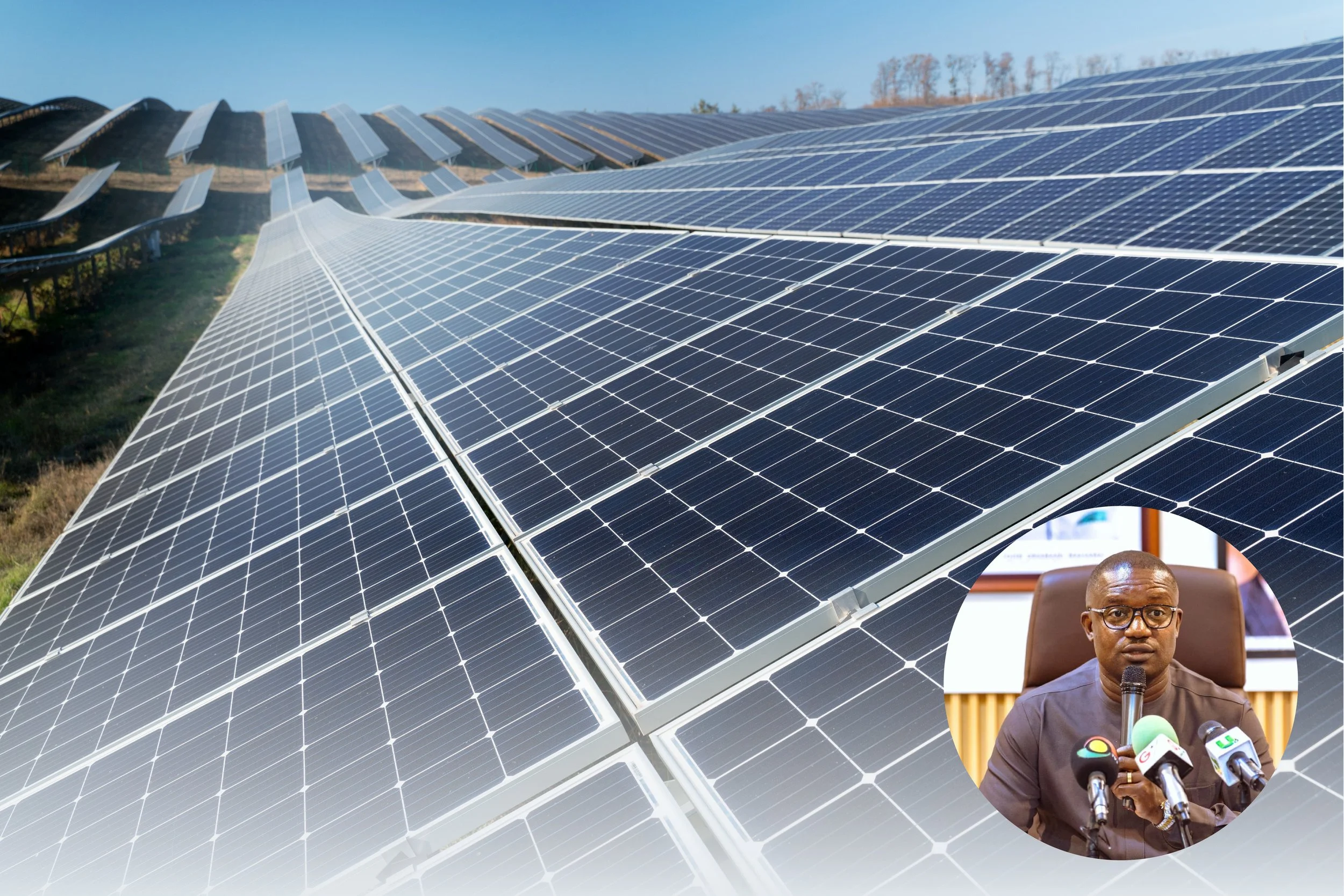Ghana’s Solar Shift Gains Momentum with €30 Million “Government Goes Solar” Programme
As Ghana targets fiscal savings and energy resilience, its latest solar investment highlights a broader national commitment to climate-smart infrastructure and clean energy growth.
Ghana’s ambition to green its public sector energy footprint has received a major boost under the “Government Goes Solar” initiative—a flagship programme expected to transform energy consumption across public institutions. Backed by a €30 million loan facility from Germany’s KfW Development Bank, the project will fund the deployment of 22 megawatts (MW) of rooftop solar installations across government facilities, schools, and hospitals.
According to figures provided by the Ministry of Energy and Green Transition, the installations are expected to generate annual energy cost savings of approximately GHS 52 million. However, officials have acknowledged ongoing discussions with the Ministry of Finance to resolve administrative and execution bottlenecks that have delayed the project’s full rollout.
The programme is part of a broader policy framework to shift Ghana’s energy mix towards clean, efficient and locally available sources. In March 2025, Parliament approved GH¢1.2 billion for the Ministry of Energy and Green Transition, earmarking part of the allocation for renewable expansion, energy efficiency improvements, and digital infrastructure. This includes not only the “Government Goes Solar” initiative but also expanded smart meter deployment and utility-scale solar partnerships.
Beyond public buildings, Ghana is pursuing rural electrification through the Scaling-Up Renewable Energy Programme (SREP), launched in May. SREP will install 35 solar mini-grids and 12,000 net-metered rooftop solar systems, benefitting over 70,000 people in off-grid communities.
Meanwhile, private investment in solar energy is gaining traction. Danish-backed Renergy Solar recently announced the construction of a 20MW solar power plant expected to go live before the end of 2025. The project could scale up to 40MW, reinforcing grid stability while reducing fossil fuel dependence.
Regulatory readiness has also improved. Ghana has transitioned to a competitive bidding regime for solar project procurement, a move hailed by Deputy Minister for Energy and Green Transition, Hon. Richard Gyan-Mensah, as crucial for “scaling clean energy affordably and transparently.”
Further underpinning Ghana’s green pivot is the operationalisation of the Renewable Energy & Green Transition Fund. Rolled out in February, the fund is designed to support initiatives ranging from solar streetlighting and off-grid electrification to e-mobility infrastructure and electric vehicle incentives.
At the international level, Ghana continues to benefit from technical partnerships. Through the IRENA-led Africa Renewable Policy and Regulatory Advancement (APRA) initiative, Ghana is working to establish a Renewable Energy Authority and receive $85 million in grant-backed support for mini-grid deployment.
As global climate finance increasingly prioritizes implementation over intention, Ghana’s layered approach—from fiscal reforms and public sector retrofitting to community access and investor confidence—is positioning the country as a credible partner in Africa’s green transition.
While operational challenges remain, the “Government Goes Solar” project represents a pivotal moment: a shift from policy aspiration to execution, and a clear signal that Ghana intends to power its future with the sun.

